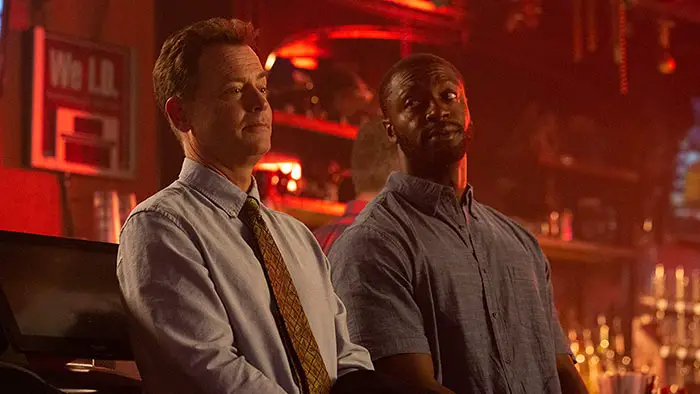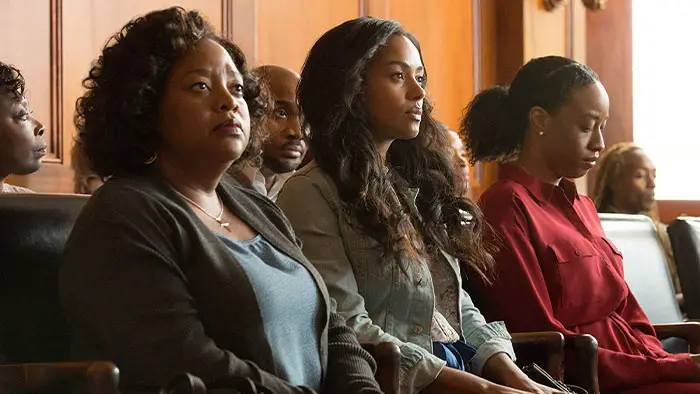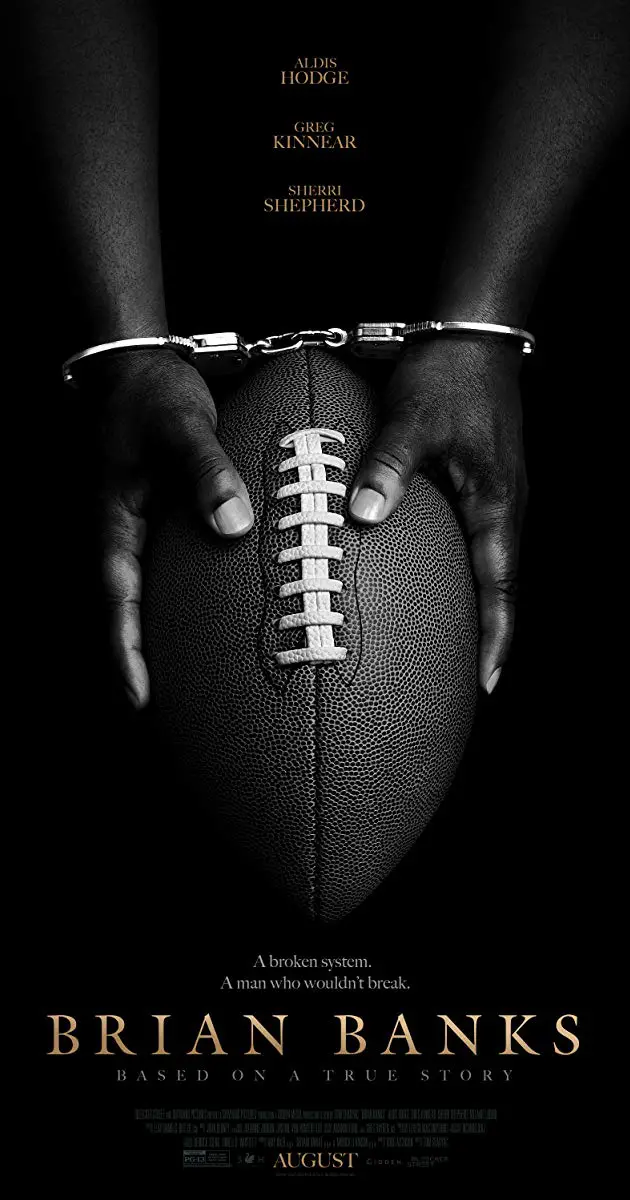
In Brian Banks, a high school student falsely accused of rape must find the strength within himself to prove his innocence. A film of hope and inspiration from Tom Shadyac, director of Ace Ventura, Liar Liar, Bruce Almighty, Nutty Professor. What intrigues me about Shadyac’s CV is not how comedically weird his films are, but his positive messaging interwoven in those films, even juxtaposed against a Jim Carrey performance. What if you couldn’t lie for a day? What if you had the omnipotent power of God? Not your typical plot lines.
Shadyac, with writer Doug Atchison, applies his message of positivity to the true story of Brian Banks. During his senior year in high school, Banks was accused of rape by a fellow student. What was a few kisses at a popular make-out spot, Banks is arrested for kidnapping and rape, and the alleged victim would win a million-dollar settlement from the school just to complicate things.
He is then pressured into pleading guilty in hopes of serving very little time in prison—little time turns into five years. Now, along with a felony on his record, a GPS ankle bracelet, and a lifetime on the sex-offender registry, Brian can’t find work and lives as a virtual prisoner on the outside.

“…pressured into pleading guilty in hopes of serving very little time in prison—little time turns into five years.”
To get his life back, Brian needs to overturn his conviction and has months to do so before it becomes permanent. He begs for the help of Justin Brooks (Greg Kinnear) from the California Innocence Project. Kinnear is especially good as Brooks, the advocate for the innocent, that’s his job but has become jaded by a convoluted bureaucracy that makes justice impossible to find.
Part social commentary, Brian Banks points out several problems with the American justice system. One that seeks convictions in spite of the truth. The facts show the victim’s testimony was sketchy at best but needed a perpetrator regardless. Then it touches on the plight of the felon and the impossibility of finding work or reintegrating into society after release
From a macro level, Brian Banks should just be a social justice film, but as we peer into the life of Banks himself, you’ll see a deeper and more profound story. It’s about how a person, who loses five years of his life, somehow finds a way to rise up to be an upstanding citizen and human being.

“His performance doesn’t work if he can’t convince audiences that he’s a man born with integrity…”
It doesn’t get worse than being labeled a felon and sex offender, especially in a #MeToo era. While it’s easy to let the trials and tribulations of life eat you alive, Banks meets a prison counselor with a profound message. You can’t change the past, but you can change how you respond to it. The film’s mantra is reinforced by the only person who can send such a powerful message—the uncredited Morgan Freeman. This powerful message is buried deep in the film and I fear it will be lost on the general public.
The film is loaded with exceptional performances including Greg Kinnear and Sherri Shepherd as Brian’s mother. It’s Aldus Hodge that needs to be called out. His performance doesn’t work if he can’t convince audiences that he’s a man born with integrity or deliver several impassioned pleas throughout the film and yet Hodge delivers Bank’s message brilliantly.
Brian Banks is a feel-good movie of triumph over insurmountable odds. Bank’s story is one of hope and inspiration and takes only a minor misstep at the end resorting in the typical Hollywood ending, where supporting characters show up at the most opportune moments in front of the camera giving that look of satisfaction and pride. Hardly eye-rolling moments, but you’ll feel a tiny sliver of hope for our world in the end.

"…touches on the plight of the felon and the impossibility of finding work..."
